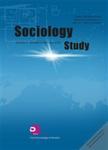Ideology and Poetics in the Estonian Translations of Nikolai Leskov
Ideology and Poetics in the Estonian Translations of Nikolai Leskov作者机构:University of Tartu Tartu Estonia
出 版 物:《Sociology Study》
年 卷 期:2016年第6卷第5期
页 面:312-319页
学科分类:0502[文学-外国语言文学] 050201[文学-英语语言文学] 05[文学] 0503[文学-新闻传播学]
主 题:Soviet cultural policy two Soviet translation policy concepts Estonian translation tradition mechanisms of cultural self-regulation
摘 要:This paper brings up the issue of a systemic study of the translation of Russian classics into Estonian during the Soviet period. These translations are often considered to be only the result of the "Sovietization" of Estonian culture, but such approach is a simplification. Estonian translations of the Russian classics in the Soviet period, undoubtedly, depended on ideological conditions, but, it is argued here, were to a great extent determined by the mechanisms of cultural self-regulation and displayed continuity with translation strategies that had been established before the occupation, in the 1920s-1930s. In the independent Estonian Republic, a remarkable tradition of the translations of Russian classics existed thanks to the activity of A. H. Tammsaare, F. Tuglas, A. Oras, H. Talvik, B. Alver et al. Estonian translators devoted the particular attention to the text's audience--the Estonian readers. The paper explains why in the mid 19S0s Leskov, an ambivalent and diffficult-to-translate writer, was chosen by O. Samma and F. Kylli for the first presentation to the Estonian readers.



